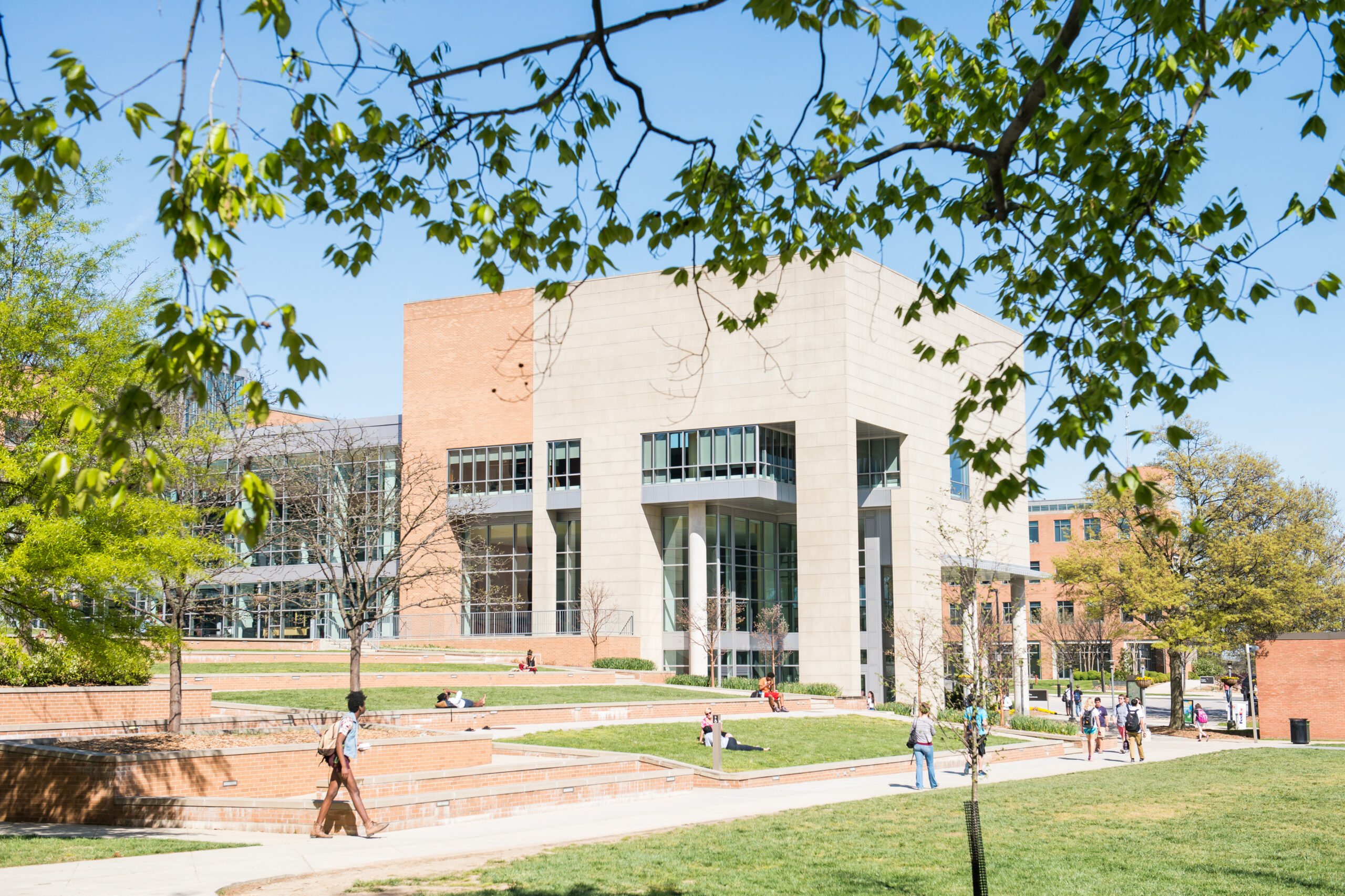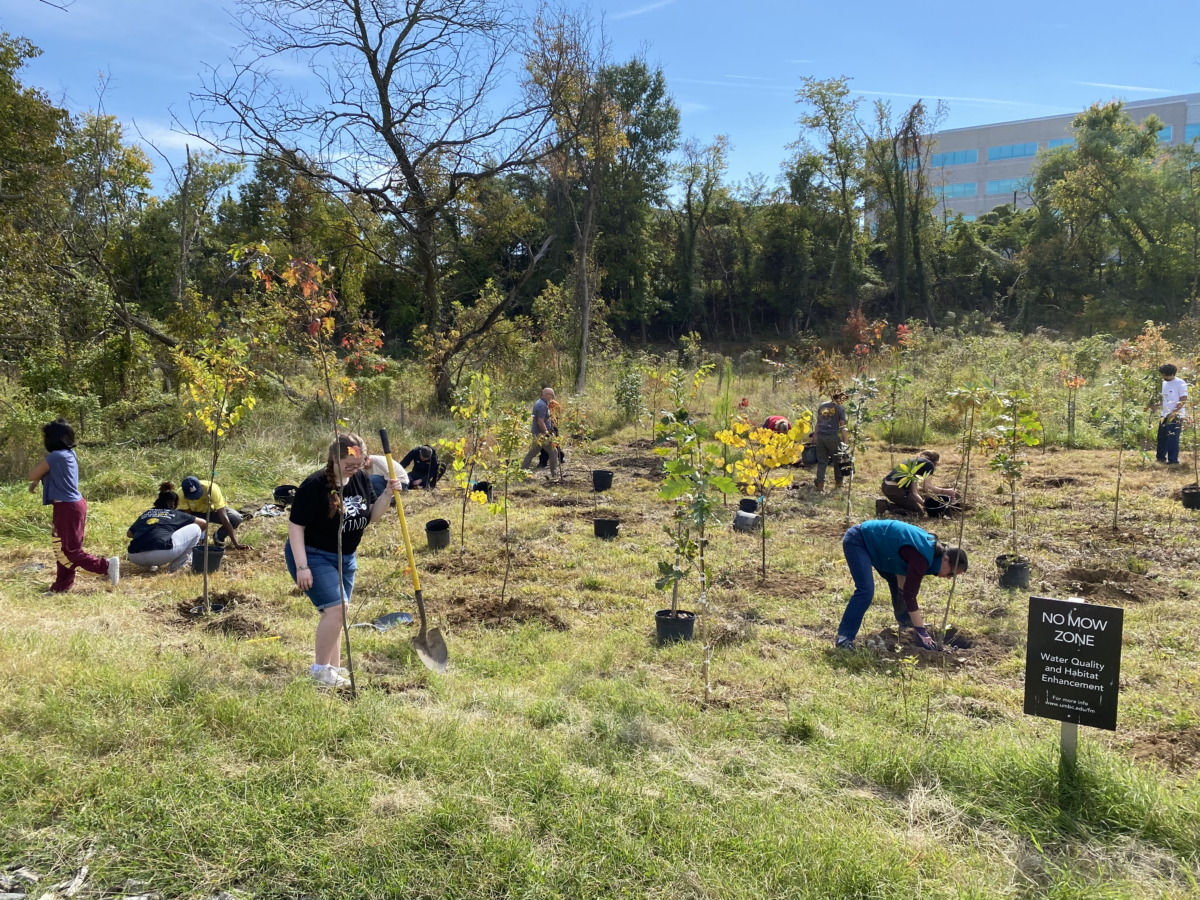The Baltimore Sun’s new education section focuses on the impact of UMBC programs that enable students to apply their knowledge from the classroom to action in communities on issues that matter to them. Highlighted programs include the newly launched Grand Challenge Scholars Program, the Center for Women in Technology Scholars Program, BreakingGround, and Prove It!, an initiative of UMBC’s Student Government Association.
The Grand Challenge Scholars Program (GCSP), featured in a large, full-color cover photo, encourages students to look at the world broadly and work collaboratively across disciplines to address issues of global concern. The first cohort, announced this fall, includes 17 students from across all three UMBC colleges, who work together to explore 14 areas of concern noted by the National Academy of Engineering, from sustainability and security to public health.
Toluwanimi Bello ‘17, chemical engineering, a GCSP student, became interested in the program because of the problems he saw in Nigeria, where he is from. “There aren’t many people thinking about alternative energy sources or recycling in Nigeria,” he said. “Things like that inspired me to join the program to make changes in the world.”
The program is structured in a way that encourages students to pursue their passions. “Each student gets to tailor the program to his or her own interest,” explains Marie desJardins, associate dean in the College of Engineering and Information Technology (COEIT), professor of computer science, and director of the GCSP. Initially, Bello chose to focus on the environmental sustainability, but is also working on the personalized medicine challenge because of his interested in developing a cure for diabetes.
The GCSP “embodies what the university is all about,” says desJardins.
The Center for Women in Technology focuses on cultivating a supportive peer group committed to the success of women in computing, engineering, and other tech-oriented careers, where they remain notably underrepresented. “At its heart it’s a community of women in computing and engineering,” explained Penny Rheingans, professor of computer science, and director of CWIT.
CWIT scholar Sara Masoudi ‘18, computer science, explained how CWIT serves as a support system for her. “CWIT has…eased my concerns time after time. Its support—both academically and mentally—is extremely important during the volatile college years,” she said.
“CWIT is unique” even among similar support programs for students, said Rheingans. “I have not seen anything like it. Programs [elsewhere] seem ad hoc or like a club. But CWIT is a program created with intentionality and pieces that fit together. During the last eight years, we have built structure, activities and seminars at touch points.”
Without CWIT, Masoudi is not sure she would have had the great opportunities to expand her skills and work with industry leaders. “CWIT has changed my life. Without it, I wouldn’t be attending UMBC. I wouldn’t have spent my summer interning at Microsoft. It’s an A-plus community to lean on. CWIT truly teaching us how to success.”
UMBC is a “hub of diversity and commitment,” said David Hoffman, assistant director of student life for civic agency. “We are preparing students to change the world for the better by teaching them to think critically and envision themselves a co-creators of community. That starts with the campus community.”
BreakingGround is one major initiative Hoffman is passionate about—a campus-wide movement to support this kind of empowerment and make more visible existing civic engagement efforts. One example of an existing project now seen as a model for how community co-creation can work is UMBC’s Prove It! competition, which enables students to compete for significant funding for innovative ideas on how to better the UMBC community through a project of articulating and clearly planning out how those ideas would be executed with campus partners.
“Being actively involved and trying to get others to be involved aligns with the university’s vision to encourage students to practice social responsibility and civic engagement,” said Bentley Corbett-Wilson ‘17, music education, president of the Student Government Association at UMBC.
“Serving this community as a student leader inspires me to want to serve whatever community I will be a part of in the future, in addition to whatever career I may be in, which is hopefully being a teacher,” he told the Sun. “I will use my passion for engagement to try to inspire my students to be engaged in their communities, so that they can be further prepared to be engaged citizens once they matriculate into the workforce as well.”
Read the full articles “Students Taking the Initiative,” “Unique Student Groups Make the Grade,” and “Life Skills” in The Baltimore Sun.
Image: The Commons. Photo by Marlayna Demond ’11 for UMBC.
Tags: BreakingGround, COEIT, CWIT




